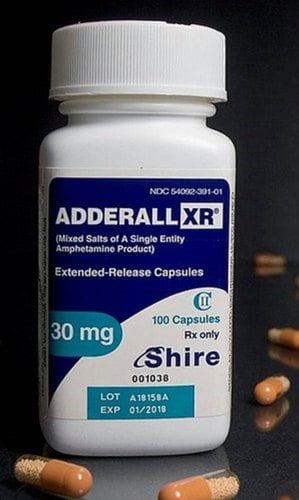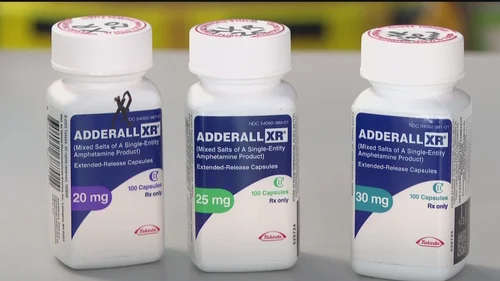Description
Adderall Tablets are a widely used prescription medication designed to manage symptoms of Attention Deficit Hyperactivity Disorder (ADHD) and narcolepsy. This stimulant medication, which combines amphetamine and dextroamphetamine, helps improve focus, attention, and impulse control, offering relief for those struggling with these conditions. Available in tablet form, Adderall is an essential tool in enhancing cognitive function and managing daytime sleepiness.
What is Adderall?
Adderall Tablets is a central nervous system stimulant that combines two active ingredients: amphetamine and dextroamphetamine. These substances work by increasing the levels of certain neurotransmitters in the brain, including dopamine and norepinephrine. This action helps to enhance attention, focus, and impulse control in individuals with ADHD, and reduces excessive daytime sleepiness in those with narcolepsy.
Key Benefits of Adderall Tablets
- Improved Focus and Attention: Adderall helps individuals with ADHD improve concentration and attention span, facilitating better performance in daily activities and tasks.
- Reduced Impulsivity: The medication aids in managing impulsive behavior, leading to more thoughtful decision-making and interactions.
- Effective Narcolepsy Management: Adderall helps reduce daytime sleepiness and improve alertness for individuals with narcolepsy.
- Enhanced Cognitive Function: By increasing neurotransmitter levels, Adderall supports improved cognitive function and mental clarity.
How Adderall Works
Adderall works by stimulating the release of neurotransmitters in the brain, which helps to increase alertness, focus, and attention. The combination of amphetamine and dextroamphetamine enhances dopamine and norepinephrine activity, leading to improved cognitive and behavioral control. Adderall tablets are usually taken orally, with the dosage adjusted based on the individual’s response and medical condition.
Dosage and Administration
- ADHD Treatment: For ADHD, the typical starting dose of Adderall is 5 mg once or twice daily, with the possibility of increasing the dose based on the patient’s needs and response. The maximum recommended dose is 40 mg per day.
- Narcolepsy Management: For narcolepsy, the starting dose is often 10 mg daily, with adjustments made based on effectiveness and tolerability. The maximum dose can go up to 60 mg per day.
- Consistency: It’s important to take Adderall as prescribed by a healthcare provider, and not to adjust the dose without professional guidance.
What to Expect During Adderall Treatment
When starting Adderall, individuals may notice improvements in focus, attention, and impulse control within the first few days of treatment. Common side effects include insomnia, dry mouth, loss of appetite, and increased heart rate. Most side effects are manageable and diminish over time. Regular monitoring by a healthcare provider is essential to assess treatment effectiveness and adjust dosage as needed.
Safety and Precautions
- Potential for Abuse: Adderall is a controlled substance with a potential for abuse and dependence. It should be used only as prescribed and monitored closely.
- Cardiovascular Risks: Individuals with heart conditions or high blood pressure should inform their healthcare provider before starting Adderall, as it may increase heart rate and blood pressure.
- Interaction with Other Medications: Inform your healthcare provider of all medications and supplements you are taking to avoid potential interactions with Adderall.
Why Choose Adderall?
Adderall offers an effective solution for managing ADHD and narcolepsy, providing significant improvements in focus, attention, and overall cognitive function. Its proven track record and efficacy make it a valuable treatment option for individuals seeking to enhance their daily functioning and quality of life. If you are experiencing symptoms of ADHD or narcolepsy, Adderall may be an important part of your treatment plan.








